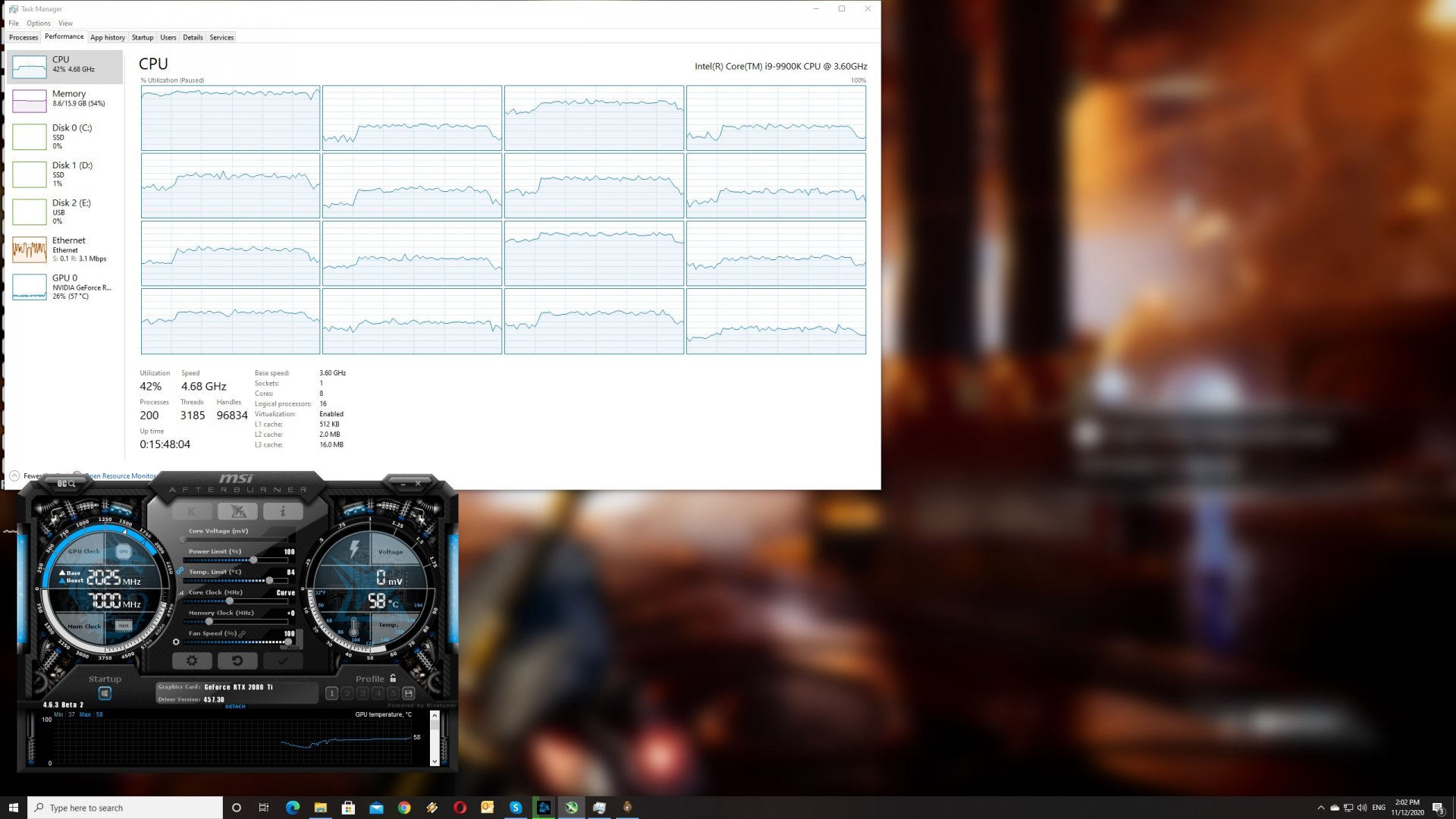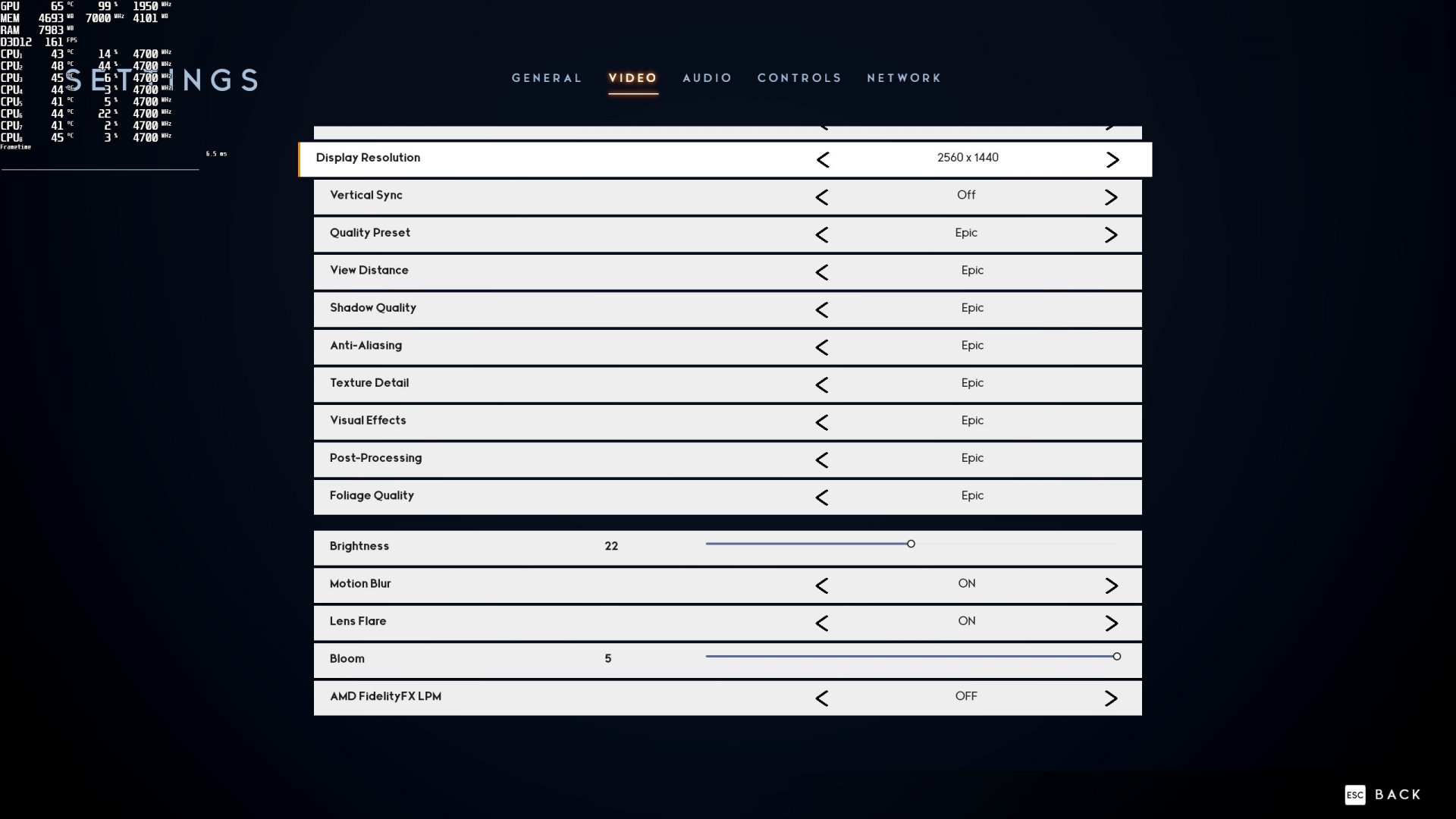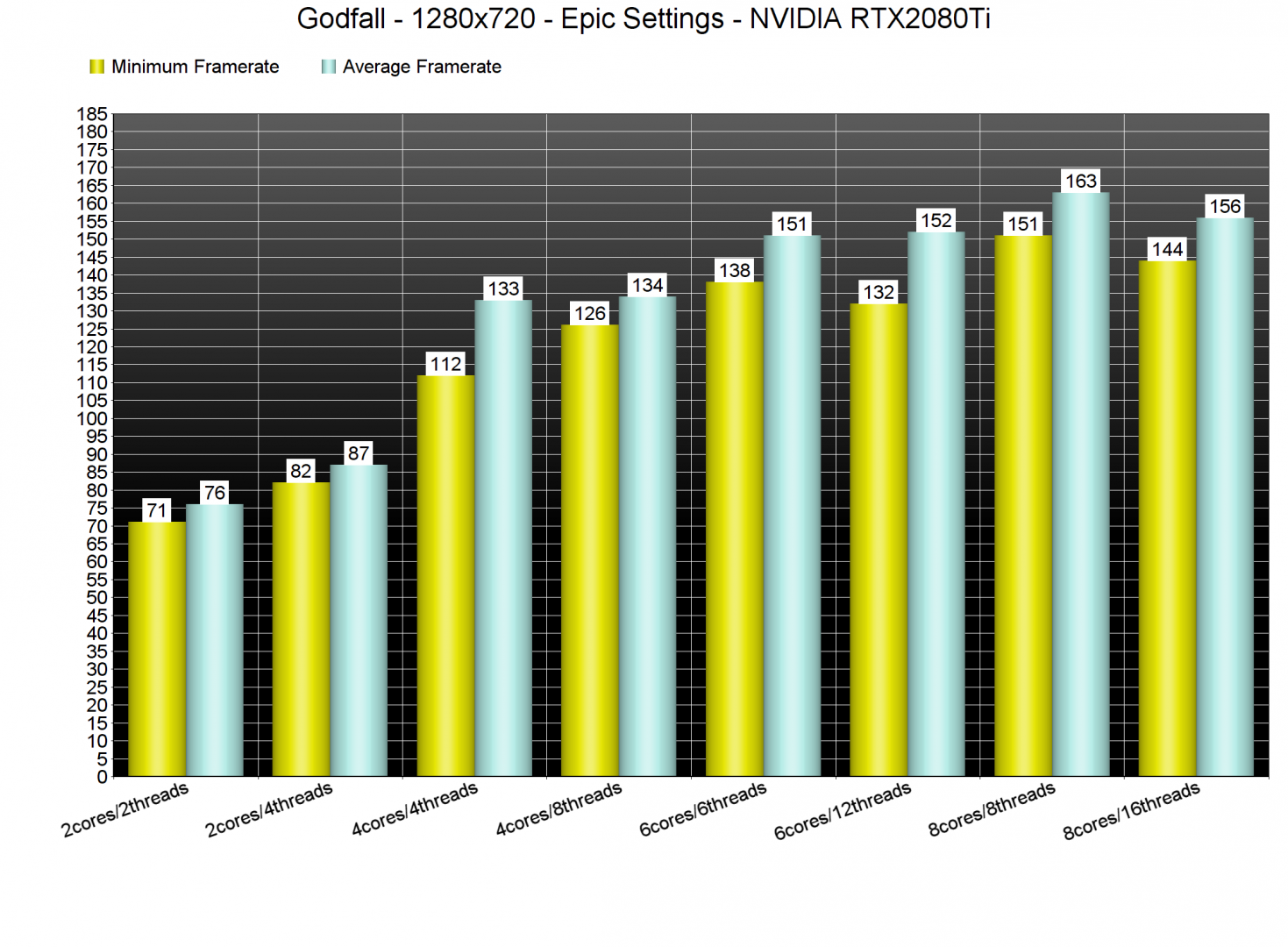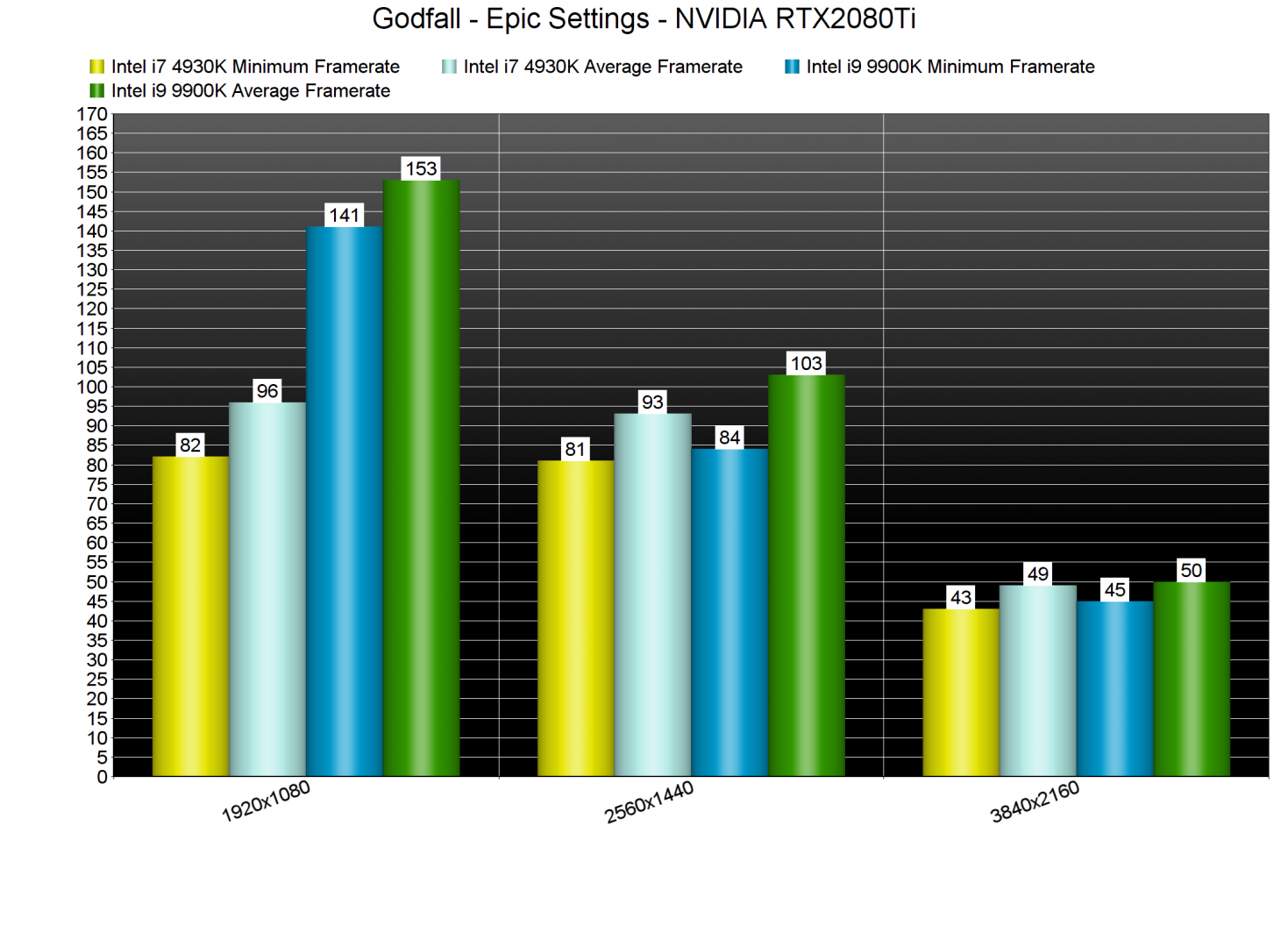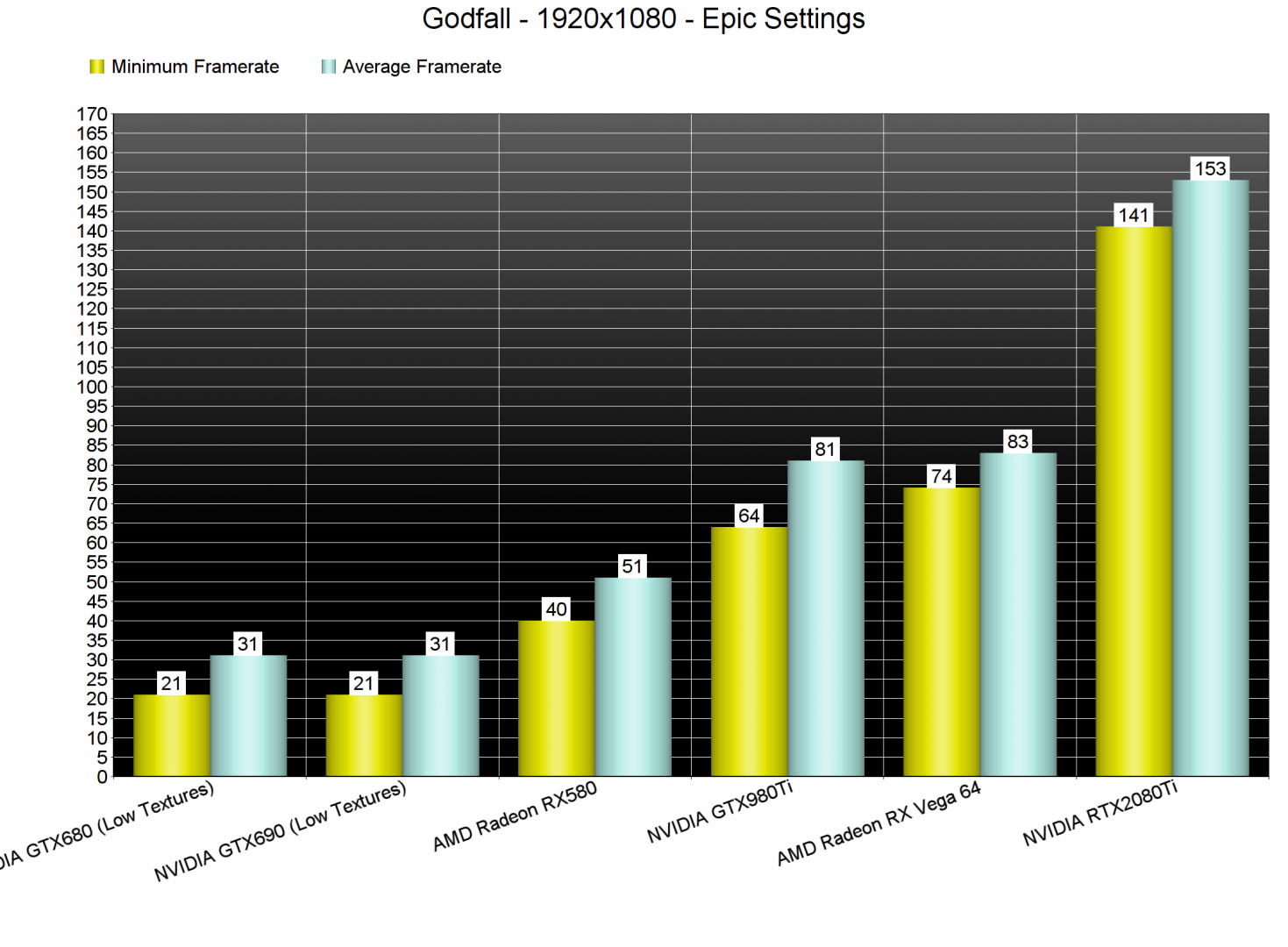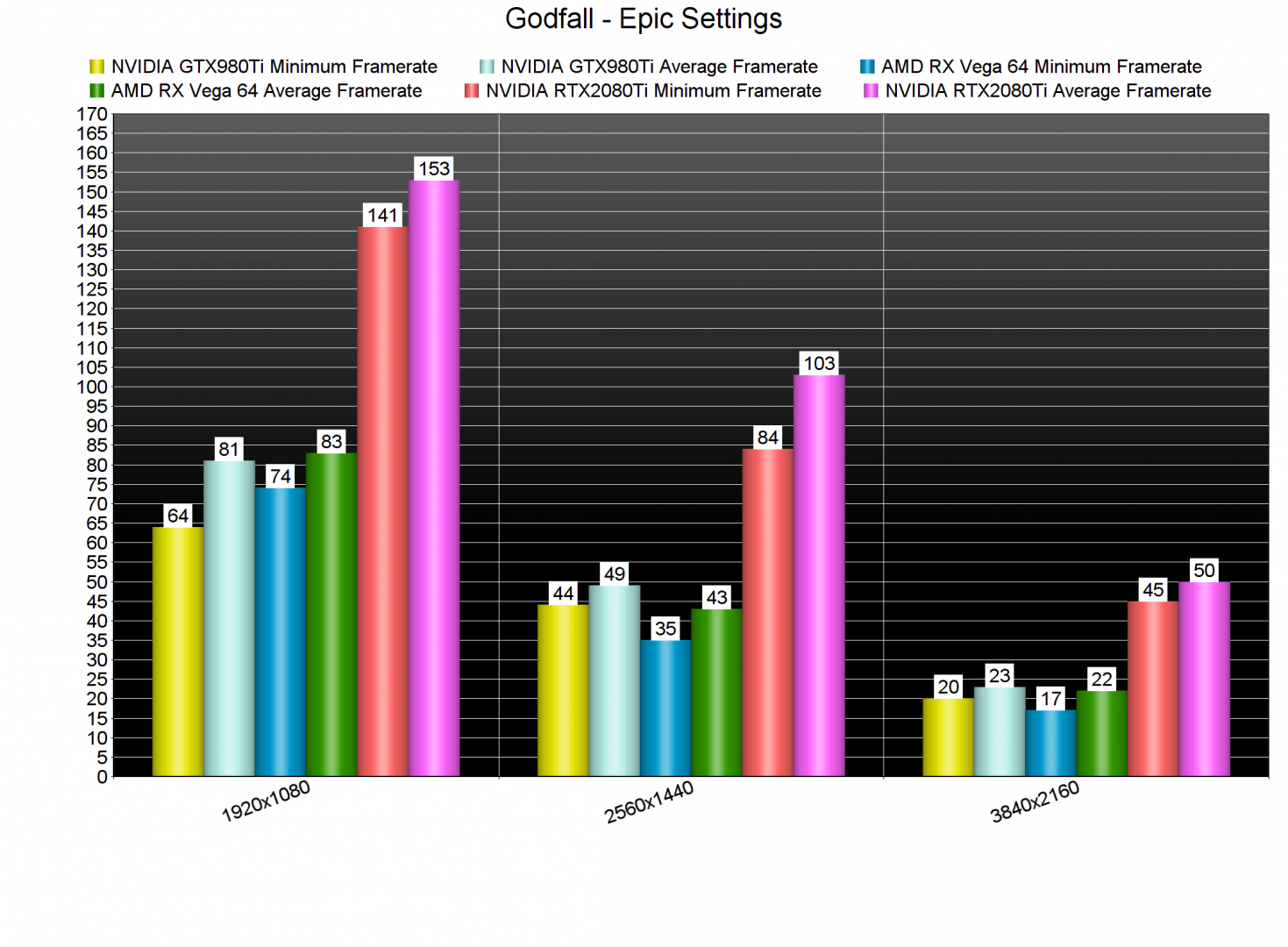Godfall is the first next-gen only game that has just been released on the PC. Powered by Unreal Engine 4, it’s time to benchmark it and see how it performs on the PC platform.
For this PC Performance Analysis, we used an Intel i9 9900K with 16GB of DDR4 at 3600Mhz, AMD’s Radeon RX580 and RX Vega 64, NVIDIA’s RTX 2080Ti, GTX980Ti and GTX690. We also used Windows 10 64-bit, the GeForce driver 457.30 and the Radeon Software Adrenalin 2020 Edition 20.11.1 drivers. NVIDIA has not added any SLI profile for this game, meaning that our GTX690 behaved similarly to a single GTX680.
Counterplay Games has implemented a respectable amount of graphics settings to tweak. PC gamers can adjust the quality of View Distance, Shadows, Textures, Anti-aliasing, Post-process, and Foliage. There are also options for Motion Blur, Lens Flares, and Bloom. Additionally, the game supports AMD’s FidelityFX LPM tech. Counterplay Games has also stated that it will add support for ray-traced shadows via a future patch.
At launch, the game does not feature any built-in benchmark tool. As such, we’ve decided to benchmark the entire second mission (which appears to be more demanding than the first mission). We’ve also lowered our resolution to 1280×720 for our CPU benchmarks.
In order to find out how the game scales on multiple CPU threads, we simulated a dual-core, a quad-core and a hexa-core CPU. And, we are happy to report, that Godfall can run smoothly even on a modern-day dual-core system. Even without Hyper Threading, we were getting more than 60fps on Epic settings. We did notice some framepacing issues that were resolved the moment we enabled Hyper Threading.
Godfall can also run smoothly on older generation CPUs. While there is a huge performance difference, our Intel i7 4930K was able to provide a constant 60fps experience at both 1080p and 1440p.
Like most recent PC games, Godfall is mostly a GPU-bound title. At 1080p/Epic settings, you’ll need at least an NVIDIA GTX980Ti or an AMD Radeon RX Vega 64. Since this game is using Unreal Engine 4, it also favors NVIDIA over AMD GPUs.
At 1440p/Epic Settings, our GTX980Ti was able to surpass the AMD Radeon RX Vega 64. Both of these GPUs were unable to provide a smooth gaming experience. Thus, the only GPU (from those we have) that was able to run the game with constant 60fps was our RTX2080Ti. At 4K, the RTX2080Ti was unable to provide a smooth gaming experience.
Graphics-wise, Godfall looks gorgeous. While this game does not take advantage of Ray Tracing, it can push amazing visuals. There are a lot of reflective surfaces, a lot of particles effects, and some truly amazing lighting effects. Furthermore, Counterplay Games has used a lot of high-resolution textures, making everything look crisp and sharp. Speaking of textures, the game did not require more than 8GB of VRAM at 4K/Epic settings. So yeah, despite Counterplay’s claims, Godfall can run smoothly on GPUs that have 10GB of VRAM.
In conclusion, Godfall can run smoothly on a wide range of PC configurations. Not only that, but Godfall is a really beautiful game. Our only gripe with this game is some annoying stutters that occur randomly. We don’t know the cause behind those stutters, however, that’s something that Counterplay Games will have to fix. Other than that, Godfall runs incredibly well on the PC.
Enjoy!

John is the founder and Editor in Chief at DSOGaming. He is a PC gaming fan and highly supports the modding and indie communities. Before creating DSOGaming, John worked on numerous gaming websites. While he is a die-hard PC gamer, his gaming roots can be found on consoles. John loved – and still does – the 16-bit consoles, and considers SNES to be one of the best consoles. Still, the PC platform won him over consoles. That was mainly due to 3DFX and its iconic dedicated 3D accelerator graphics card, Voodoo 2. John has also written a higher degree thesis on the “The Evolution of PC graphics cards.”
Contact: Email


